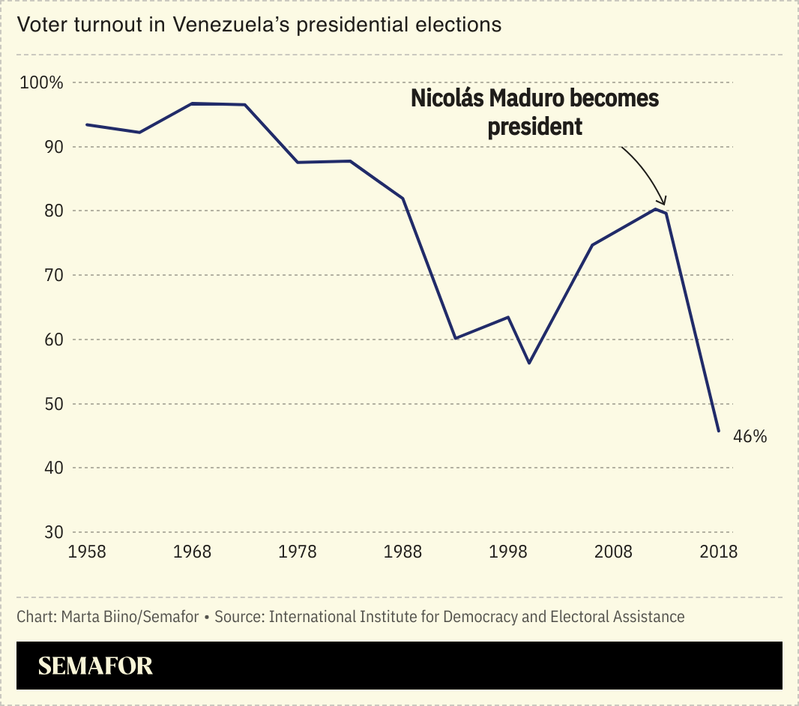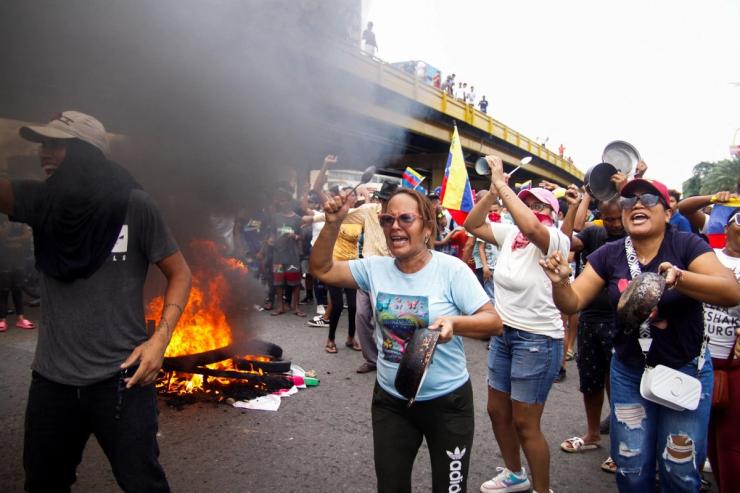The News
Venezuela cut diplomatic ties with seven countries, including Argentina, Chile, and Perù after they asked for an independent recount of Sunday’s disputed presidential election vote.
Some governments took reciprocal measures, with Panama suspending all relations and Perù recalling its ambassador.
While international pressure for transparency intensified, electoral authorities in Venezuela announced President Nicolás Maduro had won — but the opposition insisted otherwise. An independent projection of vote results based on samples of official voting receipts, run by a Venezuelan nonprofit and shared with Semafor, showed the opposition had received 66% of votes, as opposed to 31% for Maduro.
Protests opposing the government have spread across the country in response, and at least two people have been killed and dozens arrested.
SIGNALS
Coming days ‘may prove historic’
The reaction to this election’s results is markedly distinct from past polls. For the first time since Maduro’s predecessor Hugo Chávez took power in 1999, the opposition is putting up a united front and claiming fraud, Caracas Chronicles wrote, adding the next few hours “may prove historic.” The international pressure for transparency is playing a key role, analysts told Americas Quarterly, and will “test the cohesion of the government.” Brazil, Colombia, and Mexico — among the few nearby countries friendly with Caracas — are reportedly discussing publishing a statement calling for the release of ballot records, while nine Latin American countries are expected to demand an emergency meeting of the regional bloc OAS. The US and the EU also pushed for a recount.

A test for authoritarianism in Latin America
Venezuela’s election was a “crucial test” for the authoritarianism that has spread in Latin America over the past two decades. Maduro’s win seems to suggest that it’s not going away anytime soon, a political scientist wrote in The New York Times. But it remains to be seen whether Maduro can effectively keep his grip on power: If he does, “it will be a green light to other budding autocrats in the region that they, too, can act with near impunity,” the political scientist added. Some countries, like Nicaragua, Cuba, and El Salvador have established full-fledged dictatorships, but if Maduro is pushed out now, those countries could face internal pressures for change of their own.
The stakes are high for Maduro
It’s not surprising that Maduro is clinging on to power, not least because he’s done it before — his previous reelection in 2018 was also largely considered a fraud. The incumbent president also faces “devastating consequences” if he admits defeat, CNN noted: the International Criminal Court is investigating him for crimes against humanity, while in the US, he faces criminal charges including drug trafficking and corruption. Maduro and other members of the ruling party are likely also looking to preserve the wealth they’ve accumulated through government contracts and the state-run oil industry, Vox added.



